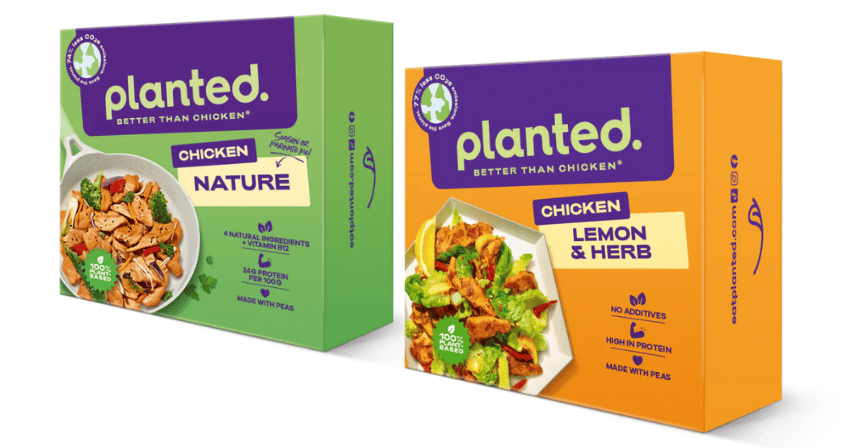Our Webinar, Sustainably Nourishing Tomorrow, Showcased Leading Sustainability Initiatives in the Food Industry
/Who is successfully implementing sustainable practices in food? Challenges are inevitable, but how are companies overcoming them? These questions, and more, were answered in our recent webinar, Sustainably Nourishing Tomorrow: A Collaborative Approach for Global Impact. In collaboration with Greater Zurich Area, the Swiss business concierge for companies looking to grow internationally in the Greater Zurich region, Branchfood brought together industry experts for conversations about the future of packaging, sustainability metrics, and creating sustainable consumer products. Annette Herz, strategic advisor at Branchfood and moderator for the webinar, spoke with Stefanie Guyer about why Greater Zurich offers an ideal environment for innovation-focused companies that prioritize collaboration between research institutions and the private sector.
Syntegon’s paper-based barrier packaging and SIG’s carton bottle
Gavin Steiner, Chief Technology Officer at SIG Group, a leading packaging solutions provider, and Stephan Schuele, Head of Product Management at Syntegon, a pioneering processing and packaging technology company, discussed how using monomaterials, meaning only one type of material in packaging, can enhance sustainability. During disposal, packages made of a single material are much more likely to get recycled because of their higher value to recyclers. Consider the aluminum foil you probably have in your kitchen at home; it’s an important tool that can act as a barrier to light, oxygen and moisture. Fifteen years ago, most beverage cartons used aluminum foil as a lining. Though the amount of aluminum was small, in fact, the lining was 7x thinner than a piece of hair, says Gavin. SIG Group pioneered its removal to reduce cartons’ carbon footprints by 23%+. That’s not even accounting for the increased recycling rate of the cartons.
Gavin and Stephan also discussed the future of the packaging industry agreeing that there’s no silver bullet, and that change will take time. Stephan discussed the current trend of “paperizing” all packaging. In his experience, paper packaging wrinkles easily, disrupting the product seal and can compromise the safety of the contents. Gavin was quick to agree that while consumers focus on the end of life of packaging, companies think more about maintaining the resiliency of the product in the food supply chain. Reducing food waste is the biggest benefit that sustainable packaging can offer, and one that can reduce carbon footprints.
Tobias Gunzenhauser, founder and CEO of yamo noted that monomaterials were also used in their packaging. The company produces shelf stable baby food using high pressure pasteurization, so they needed a material that wasn’t breakable. Yamo uses monomaterial plastic, and though the higher recyclability rate is an advantage, a lighter product offers a reduced carbon footprint which is 70% lower than their competitors using glass jars. Planted, which makes plant-based meat from natural ingredients like soy protein, and bean and rice flour, sees sustainability as core to their product and brand. Planted Co-founder, Pascal Bieri, said that the best thing they can do is help flexitarians consume more plants.
Planted, like yamo and SIG Group, are headquartered in Switzerland, a country well known for its environmental leadership and natural resource conservation. In 2023, the country voted to become carbon neutral by 2050 and the largest city, Zurich, ranks #8 in the Global Destination Sustainability Movement Index. The Swiss business ecosystem offers a resource-rich environment for sustainability-oriented companies to put down roots and boasts the most sustainable startups per capita of any country in the world. Further, the region is home to global leaders in the food industry and leads as a global talent hub.
Interested in learning more about the region’s network of innovators and how to join the ecosystem yourself? Reach out to Greater Zurich Area. They offer free consultation and support for companies interested in expansion.
If you, or your company, are seeking deeper involvement in the dynamic and global Branchfood community, get involved! Signup for our newsletter, follow us on LinkedIn, and attend our monthly Community Table. For more information on our bespoke advisory services, or to speak directly with a member of our team, please reach out to info@branchfood.com.



























